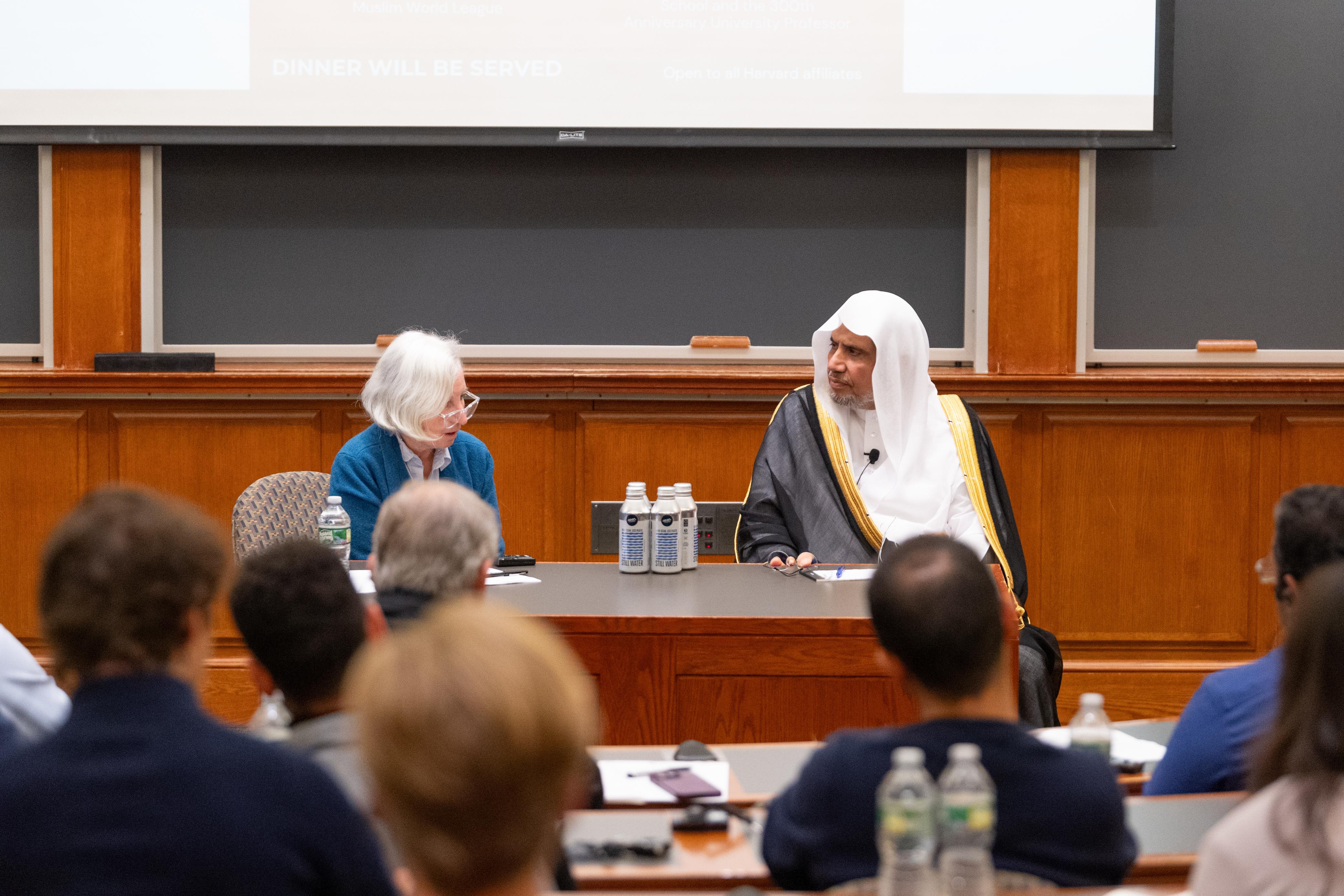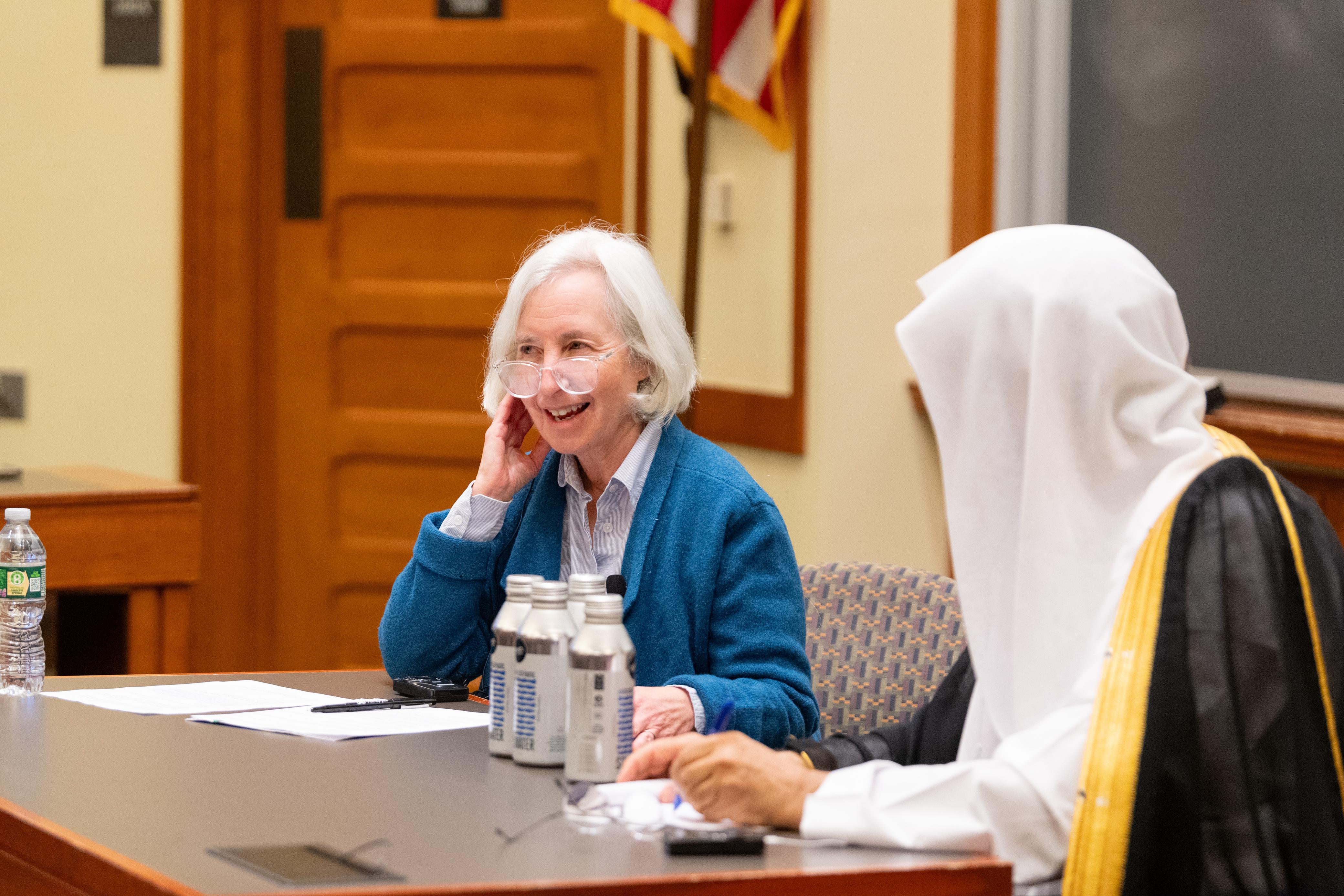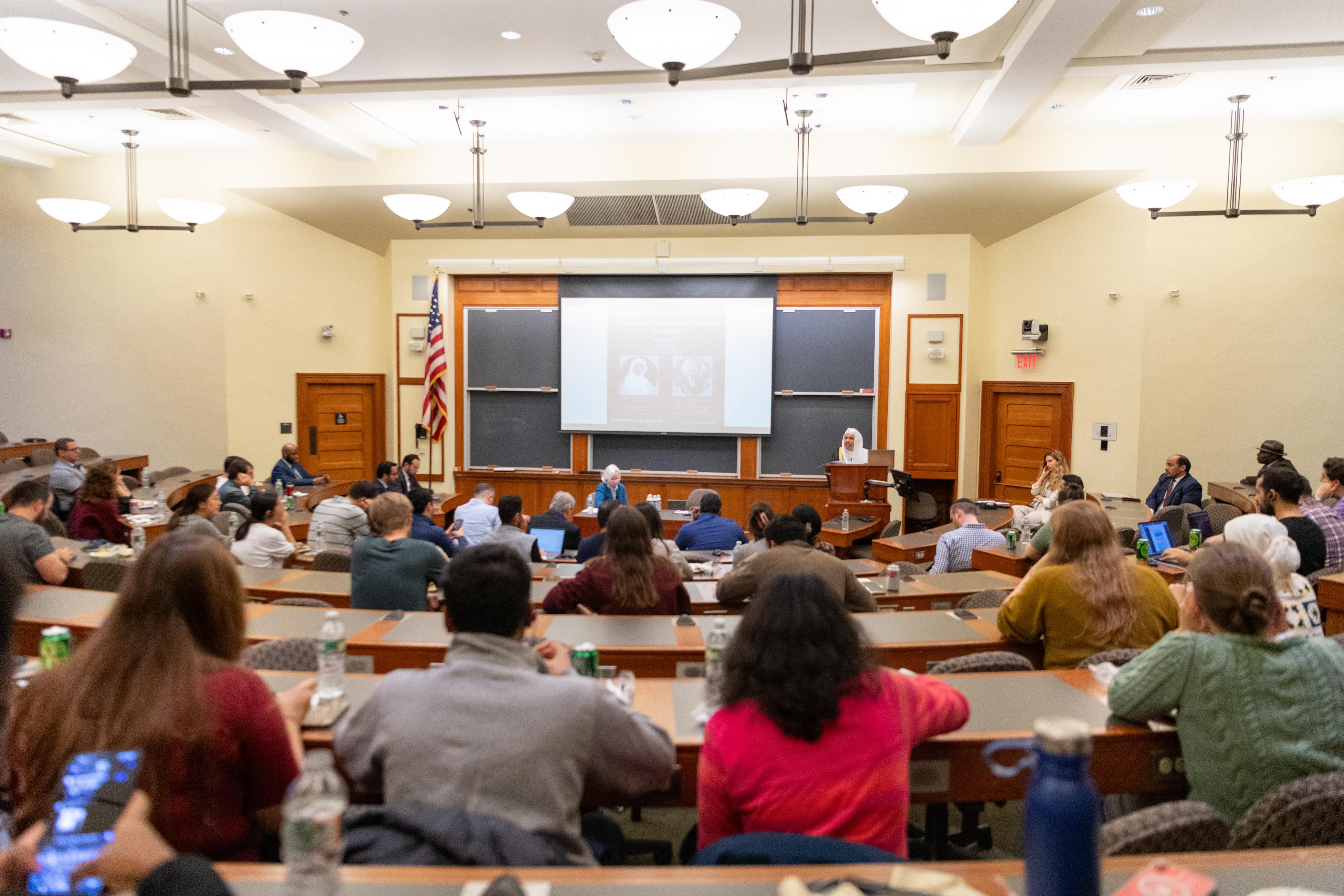
At the invitation of the College of Law at Harvard University, Sheikh Dr. Al-Issa delivered a lecture on "Religion and Law" in the presence of faculty members, and policymakers.
In his lecture, Dr. Al-Issa addressed the complexities of religious and legal interpretations, exploring the potential conflicts between religious texts and legal statutes in countries with religious diversity, as well as strategies for navigating these challenges.
• Exploring the Foundations of Maintaining Community Unity
• Highlighting the Muslim World League's Experience with the Makkah Al-Mukarramah Document and the Document on Building Bridges among Islamic Madhabs
• Recommendation to Publish the Lecture to maximize its benefits

Cambridge:
At the invitation of Harvard Law School, His Excellency Sheikh Dr. Muhammad bin Abdul Karim Al-Issa, Secretary-General of the Muslim World League (MWL) and Chairman of the Organization of Muslim Scholars, delivered a lecture titled "Law and Religion: Prospects for Peace and Confronting Societal Divisions." The event was attended by faculty members, policymakers, and students.
His Eminence addressed the diversity of religious and legal interpretations, highlighting the conflicts that can arise between religious texts and legal statutes in countries with religious diversity, along with strategies for effectively managing these challenges.
He also discussed key foundations for maintaining community unity, particularly as diversity shifts from its typically positive state to more pronounced divisions in some societies. He provided a detailed analysis of this situation, reviewing potential solutions and their philosophical implications within various religious and legal frameworks.
The MWL Secretary-General examined various aspects of religious and legal jurisprudence during the lecture, emphasizing the significance of finding common ground between religion and law to foster societal peace and enhance unity.
His Eminence specifically reviewed and discussed the perspectives of the legal philosopher and politician, Ronald Dworkin, a Harvard graduate, on issues relevant to the themes of the lecture.
His Excellency explained that laws universally support world peace and societal unity, regardless of religious, ethnic, intellectual, or political diversity. He emphasized the importance of preserving human dignity and preventing discrimination and division, noting that these principles align closely with religious legislation. Thus, there is no conflict between religion and law on this crucial matter of global peace and unity. He highlighted that the texts of Islamic law celebrate human values and virtues, regardless of their origin.
During the discussion that followed the lecture, which was moderated by the esteemed Professor Martha Minow from the College of Law, Dr. Al-Issa elaborated on the roles of religion and law in promoting community unity and addressing division. He reviewed the challenges and threats faced, along with the proposed ideas for overcoming them.
During the same discussion, His Excellency outlined the essential rules and conditions for achieving effective and fruitful dialogue, distinguishing it from past discussions that have often been overlooked, resulting in wasted effort, time, and missed opportunities.
The discussion also addressed historical and contemporary conflicts and the role of religion in these contexts, alongside the legal responsibilities involved.
His Eminence highlighted the Muslim World League's experience with the Makkah Al-Mukarramah Document and the Document on Building Bridges among Islamic Madhabs.
Following an extensive discussion with attendees, a recommendation was made to print and publish the lecture to maximize its benefits.









